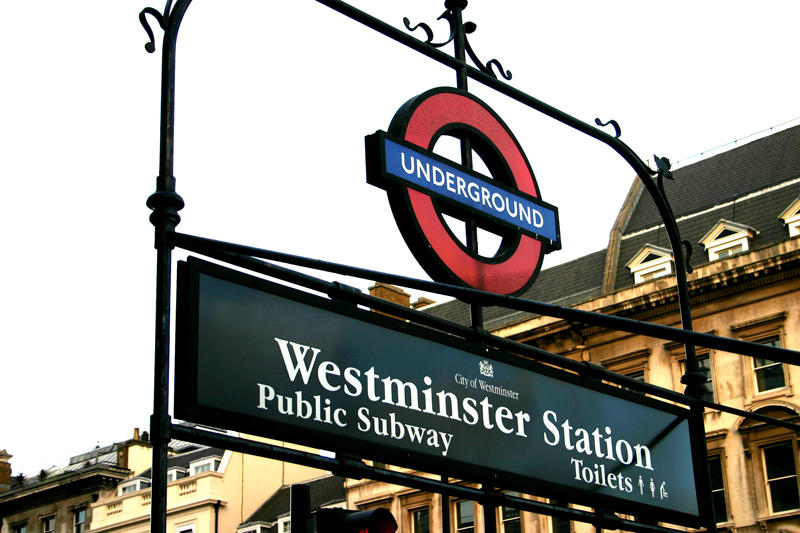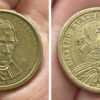Mandatory resort fees have long been a scourge and have been allowed to run rampant at hotel and resort properties in the United States, where charging them to consumers may be considered unethical by some people — but doing so is technically legal — and if you are thinking about staying overnight in London, be aware that some higher-end hotel properties have been charging what is known as a discretionary service charge.
Watch Out For Discretionary Service Charges at Hotels in London
As an example, reservations at two hotel properties of Hyatt Hotels Corporation were booked by FlyerTalk member PortlySpartacus back on Friday, February 18, 2022; and only after the reservation process was completed did a message appear that a discretionary service charge of five percent would be added to the accommodation bill. “Nowhere did this 5% fee show up during the reservation process on the Hyatt website. Only after I booked the room did I see this statement show up in the confirmation email in the Reservation Details section of the email as a ‘Note from the hotel’,” according to PortlySpartacus. “How can these properties get away with tacking on a fee after reservation has been confirmed at a previously confirmed price? What gives?”
Actually, the disclaimer which pertains to the discretionary service charge does appear in the process of booking the reservation — in this case, with the Hyatt Regency London – The Churchill hotel property — before the final confirmation that it has been booked.
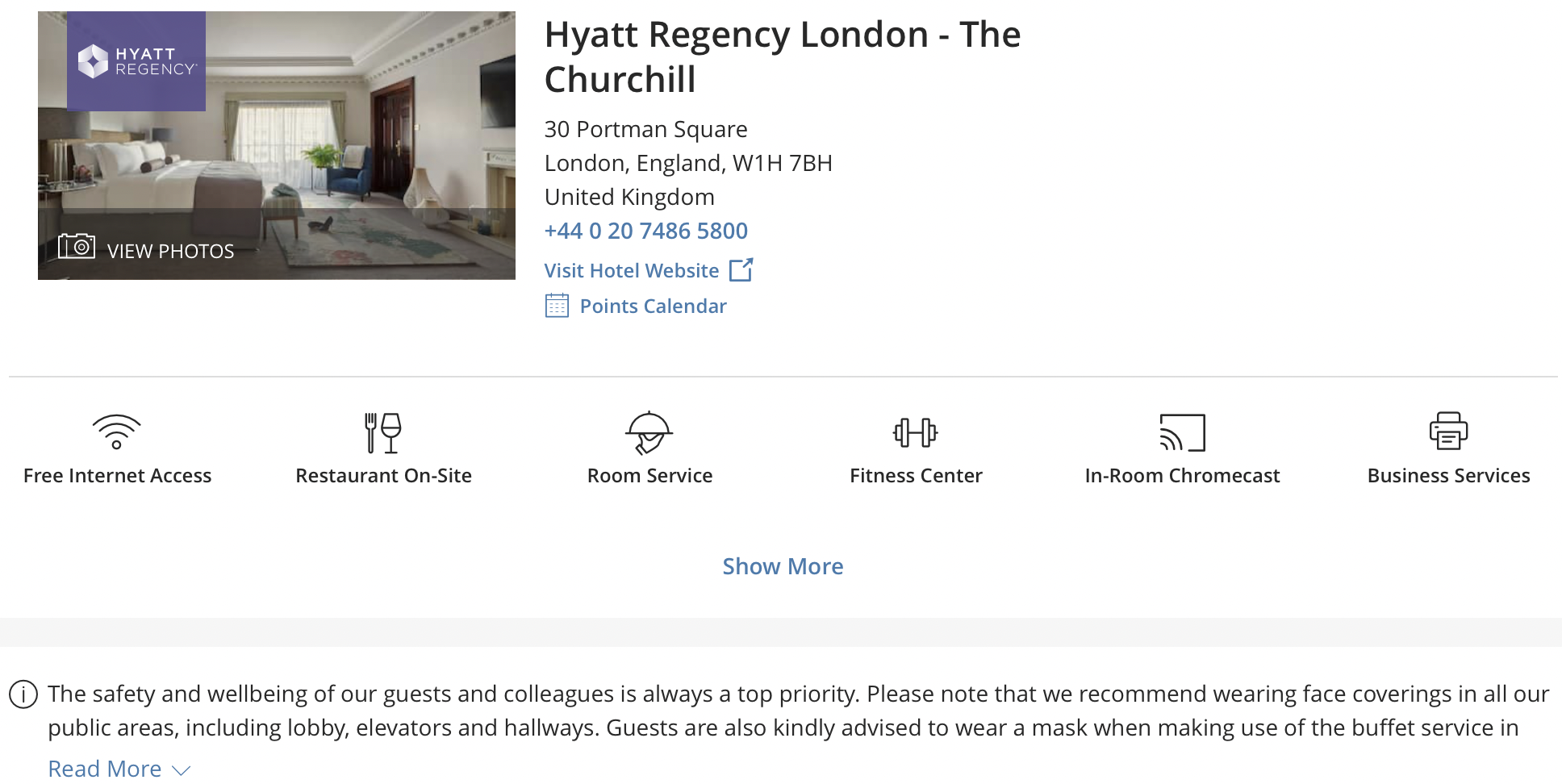
To see the disclaimer — which has been highlighted in a red box in the screen shot below — you must click on Read More to see the entire text, which is initially hidden from view.
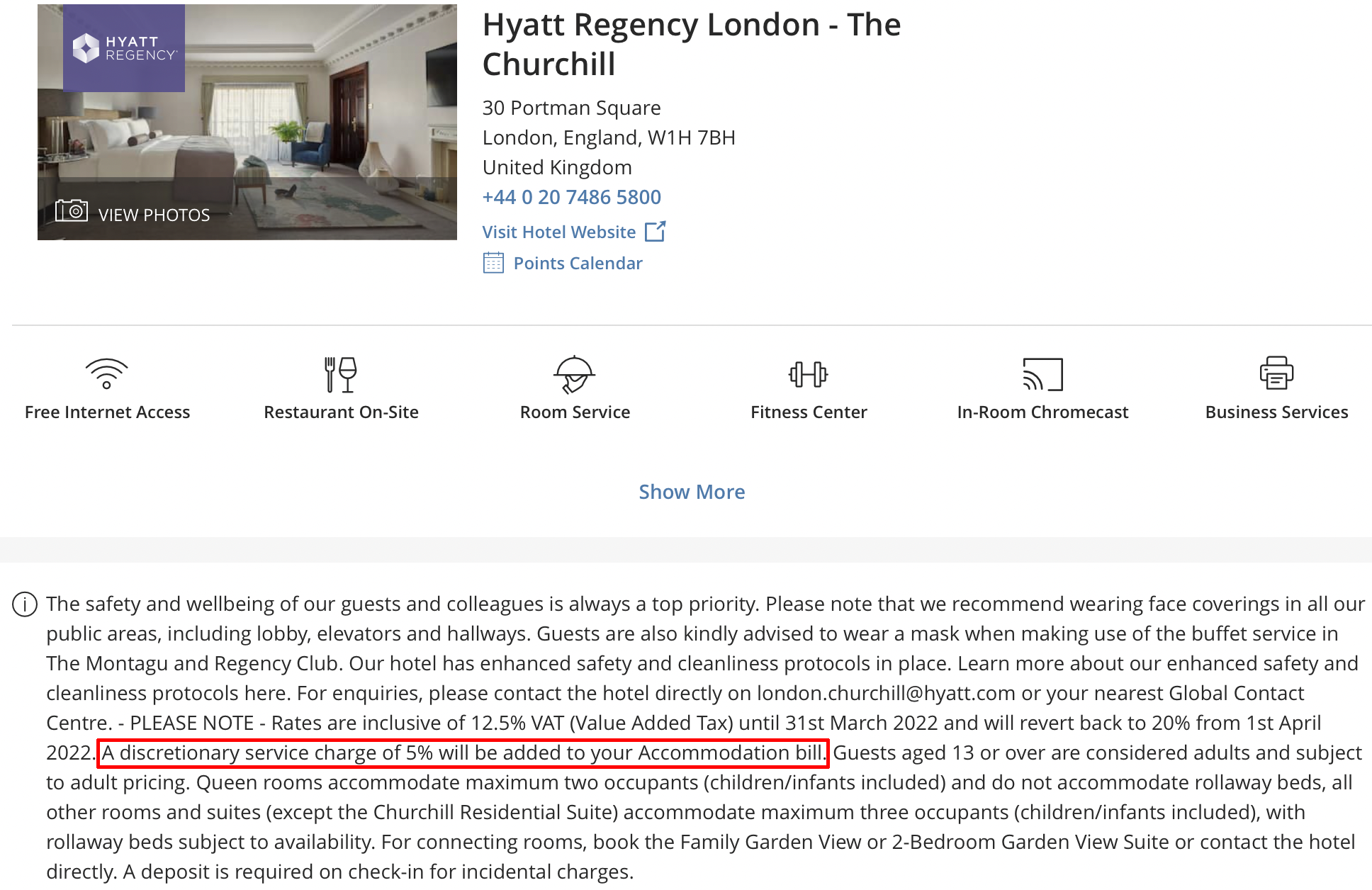
The disclaimer is worded as “A discretionary service charge of 5% will be added to your Accommodation bill.”
After contacting a member of the staff at one of the hotel properties to express how surprised seeing this fee show up as a note in the confirmation e-mail message, PortlySpartacus received a response that “These charges are discretionary and if you are refusing to pay them the Hotel will remove them upon Check out from your bill.”
The concept of a mandatory resort fee — or similar mandatory fee — is illegal in the United Kingdom, as the final bill could be up to 20 percent more expensive than initially advertised. Because of this, “A new enemy is now emerging in the UK, however – the ‘optional’ service charge on your room rate”, according to this article which was written by Rob Burgess of Head For Points and includes other examples of the practice of hotel properties charging discretionary service charges. “Because the charge is ‘optional’, it does not need to disclosed as part of advertised prices.” It is shown in small print as part of the process of booking a hotel reservation…
…but the “enemy” is not all that new. “The Savoy Group has made the most concerted move in this direction. Last March, it added a 5% discretionary service charge to bills at its London properties”, according to this article from Wednesday, February 19, 2003 — which is greater than 19 years ago — from The Caterer. “A Savoy spokeswoman said the optional charge was an alternative to cutting back on the variety and quality of services expected at luxury, five-star hotels in a slowing economy.”
Final Boarding Call
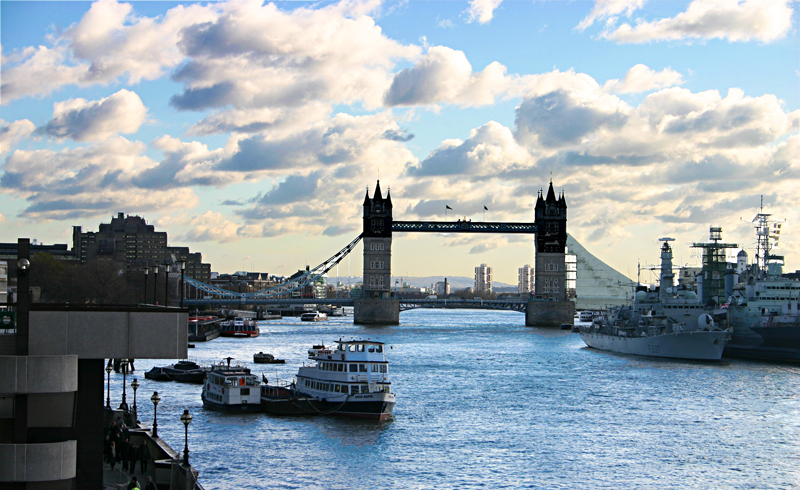
Fortunately, this discretionary service charge is just that — discretionary, which means that if you are subject to one of these fees when staying at certain hotel properties in London, you can just inform the agent at the front desk that you do not want to pay it; and they should remove the charge from the final bill with no issue…
…but I have to wonder how many guests simply blindly pay the extra three percent to five percent on their folio when their stays conclude and do not realize that they are not required to pay the discretionary service charge.
Base rates at the Hyatt Regency London – The Churchill hotel property can vary between £351.00 and £428.00 per night — which means that a discretionary service charge of five percent can add between £17.55 and £21.40 per night, which translates to approximately $22.88 and $27.90 at the exchange rate at the time this article was written.
Another question I have is what exactly does the discretionary service charge cover? For what exactly is a guest paying an extra five percent? If I stayed at the aforementioned hotel property, what do I get in return for paying up to almost $28.00? At least hotel and resort properties which impose a mandatory resort fee attempt — poorly at best, in my opinion — to justify charging such a fee.
I have said it many times before; and I will say it again: if management at a hotel or resort property wants to levy a fee or service charge for amenities and services, that fee should be optional in which the consumer has the final say on whether or not he or she wants to pay that resort fee — and discretionary service charges are indeed optional — and if the fee or service charge is mandatory, then instead of separating it from the room rate, include it as part of the room rate…
…but hotel and resort properties which do not initially disclose service charges or fees do so to give the perception that their advertised room rates — which never disclose service charges or fees in an obvious and completely transparent manner — are deceptively lower than their competitors; to avoid paying travel agencies commissions; and in some cases, to avoid paying more money in government taxes.
Discretionary service charges and fees clearly do not benefit the consumer. They do not provide consumers any value or benefit. Worst of all, the mandatory versions of those service charges and fees do not give consumers the choice of whether or not to pay them. To suggest otherwise is outright deception and lies.
To add insult to injury, guests usually must pay taxes resulting from the mandatory fee — and possibly the discretionary service charge — or whatever term it may be called.
Regardless of the method of enrichment — including compensation in the form of points — no one should be subject to the deception of discretionary service charges, mandatory resort fees, and their brethren, as they are nothing more than advertising artificially low room rates to which the unsuspecting guest may be attracted but could never hope to pay such an inexpensive rate. Lodging properties should instead simply raise their room rates by the amount currently covered by these mandatory fees for truth in advertising.
The most effective way to combat this scourge — short of government legislation, of which no sign exists that that will happen anytime soon — is to boycott all hotel and resort properties which have the nerve to charge fees which guests are required to pay but get little to no value in return.
Other sites which are in the fight against resort fees include ResortFeeChecker.com — with which you can check on which hotel or resort properties charge the mandatory fees and how much they will lighten your wallet or purse — and KillResortFees.com.
For links to other articles at The Gate which pertain to mandatory resort fees and similar topics, please refer to the conclusion of this article.
All photographs ©2008 by Brian Cohen.
